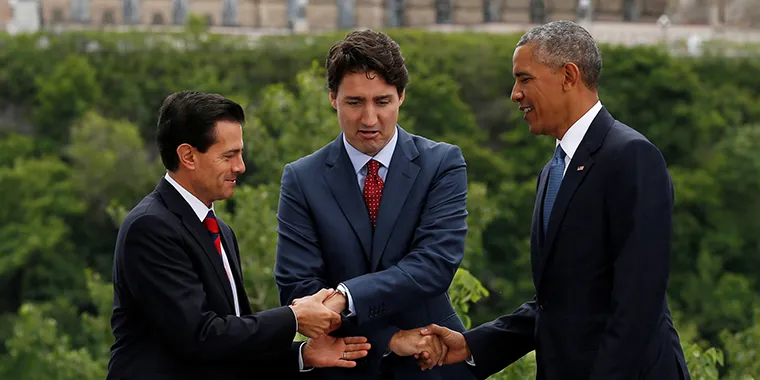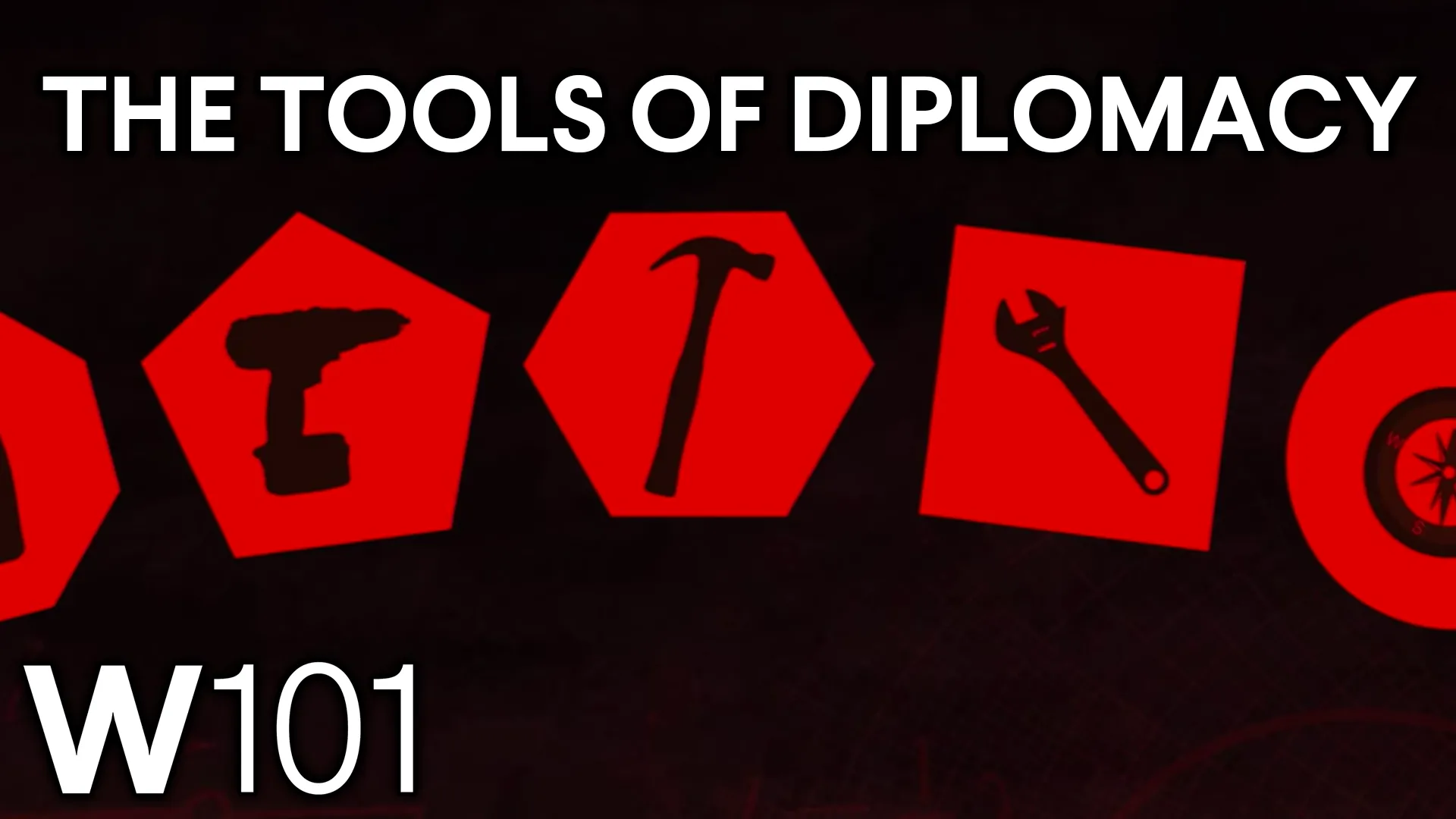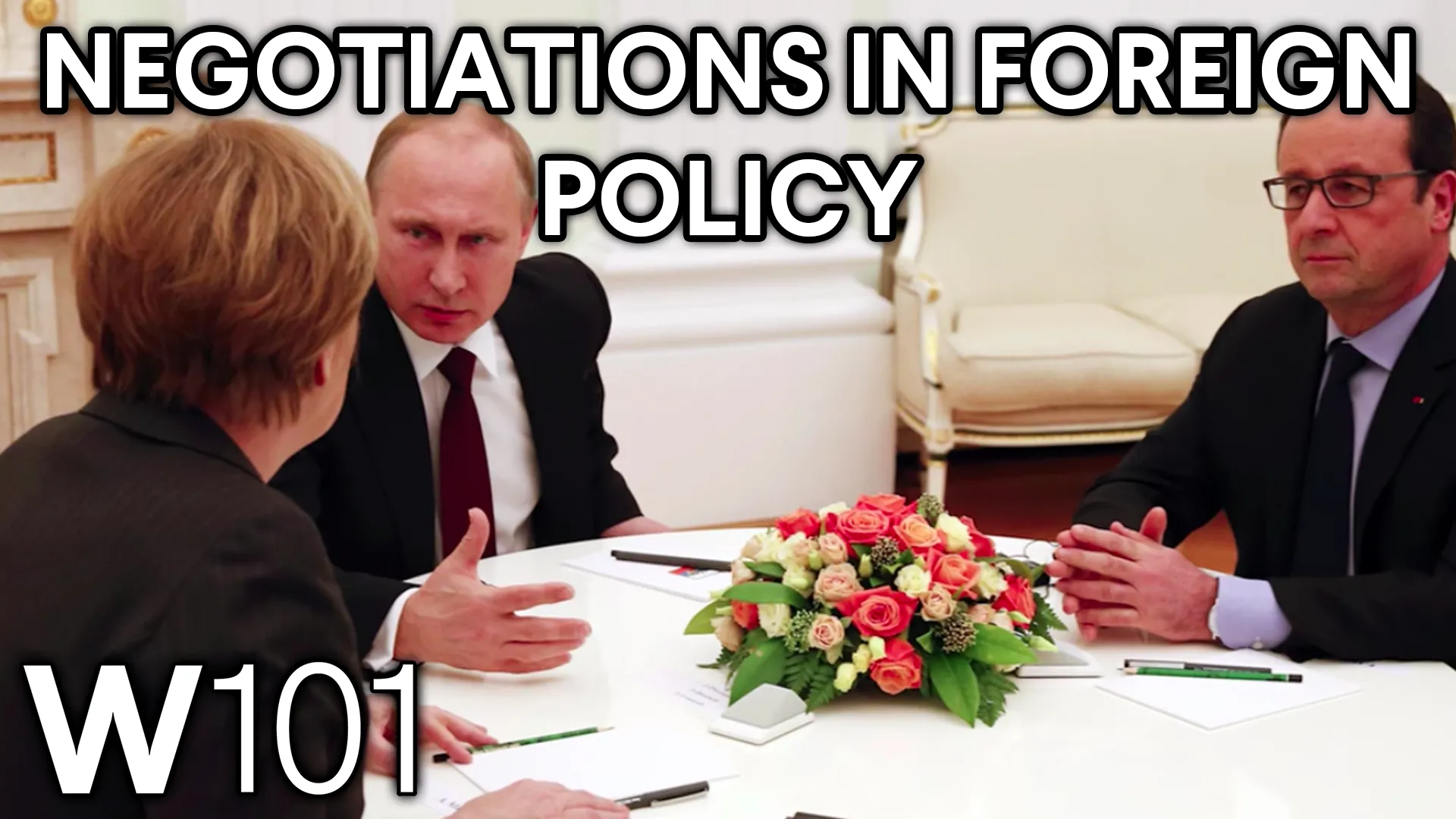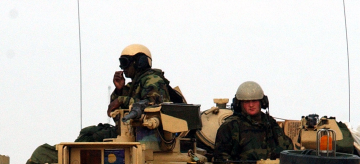What Is Diplomacy?
In this free resource on diplomacy, understand how countries advocate for their national interests through foreign policy.
Secret talks. Ping-pong. Musk oxen and pandas. Do those phrases sound random? Well, a deeper look tells a different story. How does each pertain to diplomacy and, specifically, U.S.-China relations?
To answer that question, let’s rewind the clock to the Cold War when U.S. relations with China were chillier than ever. The Chinese Communist Party (CCP) came to power in 1949 following the country’s civil war, but Washington refused to acknowledge its rule. Instead, the United States cooperated with the newly exiled government in Taiwan, a strong anti-communist ally. But in the early 1970s, the United States considered establishing relations with the CCP, hoping to take advantage of the increasingly troubled relationship between China and the Soviet Union and to weaken the link between China and North Vietnam amid the Vietnam War.
Several diplomatic initiatives helped thaw the ice. First, the U.S. and Chinese governments commenced secret talks. Then, in 1971, U.S. ping-pong players were invited to a tournament in China. After the matches, during which U.S. and Chinese players exchanged gifts, they toured each other's countries. (This later came to be known as ping-pong diplomacy.) In 1972, then President Richard M. Nixon shocked the world by traveling to China to sign a communiqué, or official statement, pledging to work toward improving relations. The two countries commemorated the historic event by exchanging unusual presents: two musk oxen, Milton and Matilda, from the United States; and two pandas, Ling-Ling and Hsing-Hsing, from China. Ultimately, the United States formally recognized the People’s Republic of China (and downgraded relations with Taiwan) in 1979 under President Jimmy Carter.
The fact that ping-pong and gift-giving can influence foreign policy might seem hard to believe. But in the United States and China’s case, years of such diplomacy helped normalize relations between the two countries.
In this resource, we’ll explore the ways leaders use diplomacy to pursue their foreign policy priorities, the factors that make diplomacy a successful, and the circumstances in which it can change international relations.
Diplomacy definition
Diplomacy encompasses everything leaders do to advocate for their national interests around the world. They secure those interests by leveraging a vast array of foreign policy tools (including sanctions, foreign assistance, trade, and armed force). The real challenge in foreign policy is deciding which tools, and how much of each tool, to use in a given scenario.
Ultimately, the goal of diplomacy is to affect other countries’ behaviors to advance one’s own national interests. Diplomacy comes in many forms:
- Negotiations, or formal discussions between countries intended to resolve or prevent disputes.
- Consultations, or forward-looking conversations between countries about shared problems such as climate change.
- Back-channel talks, or secret communications between countries, often those in conflict.
- Summits and conferences, or talks between heads of state or high-level government officials, often hosted by multilateral institutions such as the United Nations.
- Day-to-day diplomacy, or daily interactions between countries carried out by embassies, including discussions between diplomats and relationship-building activities such as cultural exchanges.
Diplomacy can appear to take place only between high-level officials, but in reality, thousands of civil servants manage relations between countries. Those diplomats liaise with foreign governments, run embassies abroad—and, sometimes, even coordinate exchanges of pandas.
In the United States, much of that day-to-day diplomacy is done by members of the Foreign Service, a corps of over thirteen thousand employees who work around the world to support and secure American interests overseas. Let’s explore the inner workings of a U.S. embassy to see what American diplomacy looks like in action.
Diplomacy in Action
What makes negotiations successful?
Just about every aspect of international relations is subject to a negotiation at one time or another.
Unlike coercive foreign policy tools such as military force, negotiations rely on communication, cooperation, and compromise between countries. And the success of those efforts requires countries to agree on both the goal of the negotiation and how to achieve it.
Negotiations never take place in a vacuum. Various factors affect the probability of success, including the history of relations between the negotiating parties, motivations to compromise, and public attitudes toward the dealmaking.
Negotiations fail or succeed based on whether leaders have the willingness and political power to make a deal. Simply reaching an agreement at the negotiating table is not enough; leaders also need to convince their own government and public to accept the deal. Negotiations can also collapse when one side believes it can do better away from the table—say, through fighting—or when one side tries to achieve 100 percent of its aims without cooperating, leaving the other side unable to accept the terms.
The parties to the issue can lead the negotiations or they can enlist outside mediators, such as the United Nations, the United States, or another third-party government. Outsiders can bring impartiality and help reach deals by proposing incentives. For instance, the United States has encouraged Israel to compromise in negotiations with Arab governments by offering Israel various types of military support. However, mediation carries certain risks. Parties can lose respect for an outside mediator who fails to facilitate a deal; they can also resume fighting if compromise appears impossible. Time spent mediating one conflict is also time taken away from addressing other important issues.
Negotiations can’t always solve crises, but often the goal in diplomacy is not to solve something but rather to prevent an imperfect situation from getting worse.





